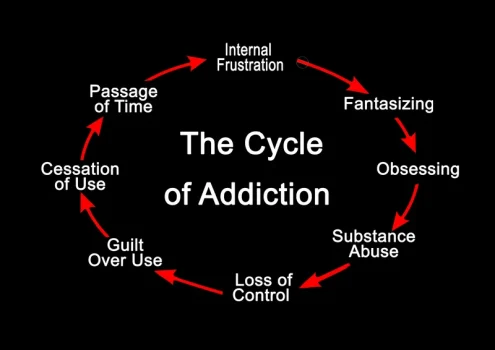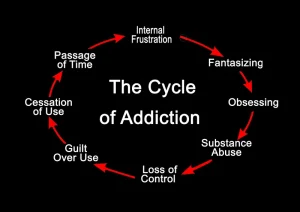
In the context of addiction addiction meditation kundalini recovery, meditation serves as a key ally. One of its primary benefits is in managing cravings and withdrawal symptoms, common hurdles in the journey toward sobriety. By fostering mindfulness, meditation helps individuals observe their cravings without acting on them, effectively reducing their intensity and frequency. Addiction is a complex and multifaceted challenge, deeply affecting individuals and their loved ones. Navigating the path to recovery often requires a combination of strategies.
- The best type of meditation for you will depend upon your preferences.
- In addition to fostering emotional regulation, mindfulness significantly reduces stress, a common trigger for substance abuse.
- Our state-specific resource guides offer a comprehensive overview of drug and alcohol addiction treatment options available in your area.
- Meditation can also be difficult as it requires a lot of focus, concentration, and quiet.
- Meditation has emerged as a promising complementary therapy for the treatment of substance use disorders.
Inpatient Drug Rehabilitation Centers is Not Always the Answer

You will find practical tips, real-life successes, and a clear explanation of the science behind mindfulness. This information may guide you toward better health, more balanced emotions, and overall well-being. Individualized treatment programs delivered in a comfortable, relaxed setting promote healing in your recovery journey. By integrating motivational quotes into daily practices, individuals not only enrich their mindset but also cultivate an environment conducive to growth, resilience, and sustained recovery. If you or a loved one is struggling with a substance use disorder, there is help available.
- Practicing mindfulness and meditation while recovering from addiction encourages you to pay attention to what you do and think about, even things that you’ve been doing on autopilot.
- What we think about ourselves and others determines how we carry ourselves in the world, how we interact with people around us and how effectively we manage life.
- Mindfulness practice can enhance the performance of the prefrontal cortex, the area of the brain that regulates planning and thinking.
- Mindfulness practices play a crucial role in emotional regulation for individuals in recovery.
- This network includes not only family and friends but also mentors and peers in recovery.
- These programs offer expert assistance in managing withdrawal symptoms, addressing triggers, and fostering positive changes for sustained sobriety.
Addiction Relapse Rates in the United States
This non-judgmental observation of thoughts dramatically reduces the likelihood of impulsive reactions, which often lead to relapse. These complaints can become triggers that lead torelapse.Multiple studieshave found mindful meditation can reduce these symptoms. People who meditate may also feel more aware of their thoughts, less bothered by unpleasant experiences and better able to control their emotions. Furthermore, mindfulness practices can be integrated into daily life, fostering resilience and a supportive environment, especially in recovery groups. Regular meditation has shown to lead to lasting cognitive enhancements, boosting focus and emotional control—both vital for navigating recovery successfully. In the context of addiction recovery, mindfulness encourages individuals to engage deeply with their emotions and thoughts, promoting better emotional regulation and coping strategies.
How to use technology and apps to support sobriety

Explore when medication assisted treatment begins, its history, and its role in overcoming addiction. Discover how support groups can aid your recovery, offering emotional support and a sense of community. Discover what the twelve steps Sobriety entail and how they can guide recovery and spiritual growth in addiction.
- The ability to reflect effectively strengthens emotional regulation skills.
- Through training in ‘trait mindfulness’, individuals can cultivate greater control over their substance-use behaviors, translating to enhanced emotional well-being.
- Another significant aspect is the activation of the body’s endogenous opioids during meditation, which decreases pain perception and aids physical recovery.
- Often, a meditation instructor selects a mantra to allow you to achieve mindfulness and spiritual experience.
- Making them part of your daily life can help you stay grounded and support your journey toward long-term growth.
If you have a co-occurring mental health condition like severe anxiety or depression, meditation could potentially worsen symptoms. It’s best to talk to your doctor before starting a meditation practice. With time and practice, meditation can become an integral part of your recovery journey. The benefits of meditation are far-reaching, and for those in addiction recovery, meditation is a powerful ally. It teaches you coping strategies to avoid relapse, increases addiction recovery motivation and optimism, and cultivates gratitude and compassion. Self-reflection also lays the groundwork for achieving authentic happiness.
Seek Holistic Addiction Treatment That Includes Meditation
Furthermore, engaging in mindfulness practices has been shown to yield substantial health benefits, such as reduced blood pressure and improved sleep quality, both of which are crucial during recovery. Meditation therapy for substance abuse helps lessen cravings, ease withdrawal symptoms, and reduce the risk of relapse for those struggling with addiction. Powerful meditation benefits include increased self-control, enhanced emotional regulation, reduced stress, and improved mood. MBS combines elements of mindfulness, Acceptance and Commitment Therapy, and relapse prevention strategies, helping individuals create personalized plans to avoid relapse.

Discover the connection between hypnosis and drug addiction, its effectiveness, and role in recovery. Community support is a bedrock of Alcoholics Anonymous, reinforcing the notion that no one is alone in their struggles. Engaging in routine meetings and group reflections fosters a collaborative atmosphere where members uplift one another and share accountability.

Support Our Mission
For example, being mindful throughout the day can be difficult, and it’s often easy to lose focus. Practicing mindfulness and meditation while recovering from addiction encourages you to pay attention to what you do and think about, even things that you’ve been doing on autopilot. These things include the most mundane habits, like scrolling on social media or brushing your teeth. From withdrawal symptoms to safe practices, get the answers you need for a successful detox journey. Take the first step to sobriety with a comprehensive detoxification process.
Spiritual meditation is taking a peaceful journey within yourself to connect with something higher, whether you call it God, the universe, or a special energy. People from different spiritual traditions, like Hinduism, Daoism, and Christianity, all find value in this practice. Discover when your loved one doesn’t need a formal intervention and explore personalized support options today. Explore how addiction as a disease impacts brain chemistry, influenced by genetics and environment.